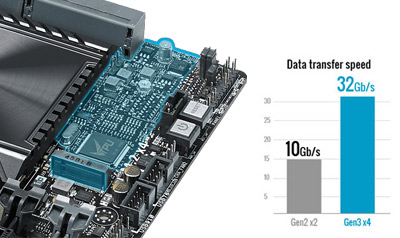Hi, I would like to hear your thoughts or recommendations on what you would do if you had my system at this point in time nearing the end of 2014.
Everything is working and money is an issue as always so keep that in mind but, I'm wondering what I may be missing out on as far as noticeable performance increases especially with SATA as my 2009 soon to be 6-year old motherboard only has SATA 2. A new CPU would be sweet too.
MSI 790FX-GD70 (could not find on Amazon)
http://www.newegg.com/Product/Product.aspx?Item=N82E16813130223
I got the mobo, CPU and HD used from a good friend 2 years ago in 2012. I upgraded the GPU from an HIS 4870 1g to the NVidia 760, which I would put in my next system along with my PSU.
So my system now is:
MB: MSI 790FX-GD70
CPU: AMD Phenom II X4 955
HD: WD Blue 500g SATA3, 16mb cache
RAM: 8g Mushkin 1600
GPU: Evga 760 SC 2g
PSU: Seasonic X-750w
I'm considering making the jump from AMD to Intel. I've never had an Intel system before.
I've been holding out for DDR4 ram at 3200, DisplayPort 1.3, SATA Express/SATA 4 etc but, it will all be way too expensive for me when it first comes out so that's my pickle - I have to wait until it becomes standard and prices come way down. So, what would you do to get the most bang for the buck? I expected to have to wait until next year any way.
Settle for a Z97 or H97 or wait until next year?
I don't over-clock anything anymore for longer life-span to save the cash so, I wonder if an H97 system would suit me fine? Would an H97 cause me any issues?
I've also been holding out for a new system before I spend the $ on an SSD and aren't we on the cusp of new SATA SSD's at 12 to 16 g/ps so, I'll hold out for that too instead of just 6 g/ps. I may have to get a WD Black 2TB HD tho since my 500g is full - I'm just waiting on killer discount prices for that.
I work with Adobe CS6 to do some design, some video work and I game.
What would you do?
Everything is working and money is an issue as always so keep that in mind but, I'm wondering what I may be missing out on as far as noticeable performance increases especially with SATA as my 2009 soon to be 6-year old motherboard only has SATA 2. A new CPU would be sweet too.
MSI 790FX-GD70 (could not find on Amazon)
http://www.newegg.com/Product/Product.aspx?Item=N82E16813130223
I got the mobo, CPU and HD used from a good friend 2 years ago in 2012. I upgraded the GPU from an HIS 4870 1g to the NVidia 760, which I would put in my next system along with my PSU.
So my system now is:
MB: MSI 790FX-GD70
CPU: AMD Phenom II X4 955
HD: WD Blue 500g SATA3, 16mb cache
RAM: 8g Mushkin 1600
GPU: Evga 760 SC 2g
PSU: Seasonic X-750w
I'm considering making the jump from AMD to Intel. I've never had an Intel system before.
I've been holding out for DDR4 ram at 3200, DisplayPort 1.3, SATA Express/SATA 4 etc but, it will all be way too expensive for me when it first comes out so that's my pickle - I have to wait until it becomes standard and prices come way down. So, what would you do to get the most bang for the buck? I expected to have to wait until next year any way.
Settle for a Z97 or H97 or wait until next year?
I don't over-clock anything anymore for longer life-span to save the cash so, I wonder if an H97 system would suit me fine? Would an H97 cause me any issues?
I've also been holding out for a new system before I spend the $ on an SSD and aren't we on the cusp of new SATA SSD's at 12 to 16 g/ps so, I'll hold out for that too instead of just 6 g/ps. I may have to get a WD Black 2TB HD tho since my 500g is full - I'm just waiting on killer discount prices for that.
I work with Adobe CS6 to do some design, some video work and I game.
What would you do?
![[H]ard|Forum](/styles/hardforum/xenforo/logo_dark.png)


